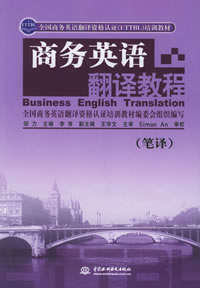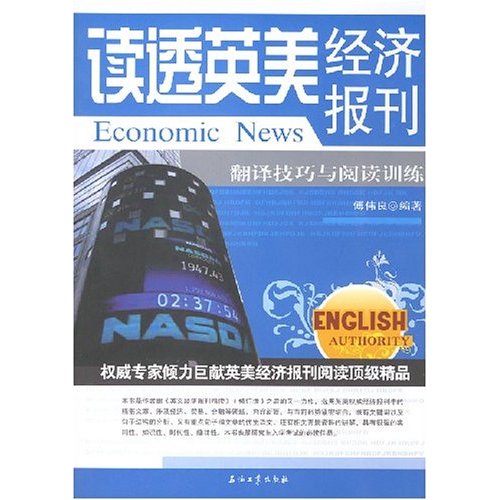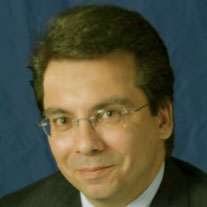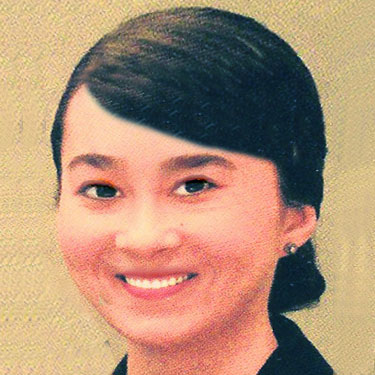医学英语的常见句型与翻译
作者:古龙 2009-07-04




语际翻译公司 转载请注明https://www.scientrans.com
∗本栏目部分文章内容来自互联网,部分已经过本站编辑和整理,如有版权事宜请联系Email/MSN jesczhao@hotmail.com
福建医科大学学报990339 根据当代语言学的观点,人们在不同的社会活动领域内进行交际时,由于不同的交际环境,就各自形成了一系列运用语言材料的特点,这就是语体[1]。根据不同的言语环境,语体首先分为日常谈话语体和公众书卷语体两大类。科学语体是书卷语体的一种,科学语体的功能是准确而系统地叙述自然、社会和思维现象,论证这些现象的规律性。这种语体用词精确,专门术语较多,句法完整,扩展句多,一般不带修辞感情色彩,它服务于科学技术领域和生产领域。
根据语体理论建立起来的科技英语是当今世界语坛上最为风行的科学语体之一,它在医学领域中的应用逐渐形成一个分支——医学英语,医学英语的常用表达手段本质上与普通英语无异,但作为一个分支,有其语体特色和习惯用法。例如,在语法方面,就有被动语态多、无主语句子多、省略句多、分词多、定语长、长句多等特点。近年来,随着国际学术交流日益频繁,医务工作者不仅需要阅读日益增多的以英语撰写的医学科技文章和教科书,而且需要将论文和科研成果用英语发表或附上英语摘要。因此,了解医学英语语法体系的特点,准确掌握最基本的医学英语应用能力,已成为医学生和医务工作者的迫切需要。本文试图从医学英语的常见句型入手,探讨医学英语句法的基本特点,笔者根据教学实践提出医学英语的9种常见句型加以讨论,以期作为医学生学习医学英语时的参考。
1 强调句
“It is(was)…that…”是一种强调句型,用来强调that从句前面的成分(主语、宾语、状语等),这个that在指物时也可用which,在指人时也可用who(whom) ,但不论在强调时间或地点时,都不能用when或where来代替that。翻译时可把这种强调结构译为“是……”、“正是……”、“就是……”等。
●It is the breast that is the leading organ site for cancer in American women[2].乳房是美国妇女癌症的首先好发的器官位置。
●It is when the body temperature is rising rapidly that the affected person may feel chilly. 正是在体温上升时患者可感觉发冷。
2 被动句
被动语态在医学英语中使用极广,凡是在不必、不愿或无从说明动作的主体时,在强调被动行为以及在便于连贯上下文的情况下,都可使用被动语态。英语被动句的翻译一般有以下几种处理方法:
2.1 可在动词前加“被”、“给”、“由”、“受”等词,译成汉语中带有被动意义的句子。
● The disease is caused by a virus.此病是由一种病毒引起的。
● The swelling is often mistaken for a bone prominence[3].这类肿胀常被误认为是一种骨隆突.
2.2 采用“把”、“将”、“使”等动词,置于原文主语(受动者)之前的方法,译成汉语的主动句。
● The blood flow may be increased by more rapid and vigorous heart action.心脏活动加快和增强可使血流增加。
2.3 一般带有情态动词can,may,must,should等的被动句,可译成汉语的无主语句。
● Examinations should be carried out to exclude tuberculosis, bronchial carcinoma and intrabronchial foreign body.[4] 应进行各种检查以排除结核病、支气管癌和支气管内异物。
● The patient with chronic bronchitis must be urged to stop smoking. 必须力劝慢性支气管炎患者戒烟。
2.4 医学英语中使用以“it”作形式主语,以被动语态作谓语,其后接以由“that”引起的主语从句的表达方式是很常见的。这类习惯用语可一律汉译为主动结构,即将原文中的主语从句置于译文中的宾语位置。有的可以不必加主语,有的则必须加上表示泛指的主语,如“有人”、“人们”或采用带有“据”字的结构。
● It is estimated that more than 90 antigenically different strains of known types of respiratory viruses cause the common cold syndrome[4].据估计,在已知的呼吸道病毒中有90种以上抗原不同的菌株能引起感冒综合征。
● It has been suggested that early treatment of streptococcal infections with penicillin may prevent nephritis.[4] 有人认为,用青霉素对链球菌感染作早期治疗可以预防肾炎。
3 倒装句
采用倒装词序的原因有二:(1) 由于一定语法结构的需要,如在疑问句中或在there be 句型中;(2)由于强调某些词的需要,采用倒装词序,常见的有以下几种情况。
3.1 在以only,never,no,little,rarely,hardly等否定词或well,often等肯定词开头的句中。
● Enlargement of the liver and spleen occurs early, but rarely are lymph nodes tender.[4] 早期出现肝脾肿大,但淋巴结压痛确属罕见。
● On no account should any medicine be given in such cases. 对这类病例决不应投用任何药物。
● Often did we warn him not to smoke too much. 我们曾经常告诫他不要吸烟过多。
3.2 在以so开头的肯定句,表示“… …也如此”的概念时,句子必须倒装。以nor或neither开头的肯定句,表示“……也不”的概念时,句子也应采取倒装词序。
● She studies hard and so do other interns. 她学习努力,其他实习医生也如此。
● It is not known how these agents act; nor is it clear what role they play. 不知道这些因素如何起作用,也不了解它们能起什么作用。
3.3 当句子以many a time开头时,应采用倒装词序。
● Many a time did we make blood count for the patient. 我们曾多次为那病人作血细胞计数。
● Many a time has the doctor met with such cases. 那位医生曾多次遇到这类病例。
3.4 在表示“……是指……”时,经常使用动词mean的被动态,而且习惯采取倒装词序,把by置于句首。
● By immunity is meant the ability of the host to resist infection.[3]免疫就是指宿主对感染的抵抗力。
● By metabolism is meant all the chemical changes going on in the human body.[3]新陈代谢是指人体内所进行的一切化学变化。
4 比较句
形容词和副词比较级的一般情况在翻译时较容易处理,但它们也可用来表示一些其他的情况。
4.1 比较级+than用于同一主体的比较,表示对than后面成分的否定,可译为“不……而……”。“是……而不是……”相当于rather than。
● The emphasis of this report lies in prevention more than in early detection of cancer. 这个报告的重点在于预防癌症,而不是早期发现癌症。
4.2 比较级前面有否定词(no,not等)时,实际上具有肯定的最高级含义,常可按最高级来翻译。
● In no area of medicine is accurate diagnosis more important or,in many instances,more difficult. 在医学领域内,准确诊断是最重要的问题,在许多情况下也是最困难的问题。
4.3 比较级+than(主要为more than)有时也可译为“不仅”,如果前面有否定词,则可译为“仅仅”,“不过是”。
● Such operation requires more than the skill of a surgeon. 这种手术不仅仅需要外科医生的熟练技巧。
● No known treatment modifies the course of the disease more than temporarily. 目前尚无改变此病病程的疗法,已有的疗法亦不过暂时见效而已。
5 虚拟语气
虚拟语气,又称假设语气,用以表示所述内容并非事实,而只是一种假设、愿望、建议而已。一般有以下几种情况:
5.1 虚拟语气在非真实条件句中的应用
在非真实条件从句中的动词虚拟语气可分为三类:(1)were型(表示与现在事实相反);(2)should be型(表示与将来事实相反);(3)had been型(表示与过去事实相反)。如果将这类条件从句中的were,should、had提前置于句首,则可将连词if省略而成为不完全省略句。
● If the capillaries of the lung were joined end to end,they would form a minute tube some 3000 miles long.[4] 如果将肺的毛细血管衔接起来,就会形成一条长约3000哩的细管。
● What would be done if the patient should develop allergy to penicillin? 如果病人真要对青霉素过敏,那该要采取什么措施呢?
● If he had been inoculated against smallpox, he would not have contracted the disease. 如果他真的种过牛痘的话,他就不会得病了。
● Had the patient followed the doctor's advice,he would have recovered long ago. 要是病人能听从医生的劝告,早就应该复原了。
5.2 were型虚拟语气可用于wish后接的宾语从句中表示动作不可能实现或实现可能性不大;也可用于as if, as though引起的方式状语从句,表示并非真实情况。
● I wish I were younger. 但愿我年轻些。
● The heart works as if it were a pump.[2] 心脏的活动好象泵一样。
5.3 should be型虚拟语气在其他从句中的应用
●should be型虚拟语气可用在主语从句中,常见的句型有:It is necessary that…,It is recommended that…,表示“建议”、“要求”、“必须”做的事。从句中的should有时可省略。
●should be型虚拟语气还可用在lest引起的目的状语从句和由连词whether(不论)引起的让步状语从句。
● It is important that the malignant tumour be removed as thoroughly as possible in surgery to avoid its metastasis and recurrence. 重要的是手术时恶性肿瘤的切除应尽可能彻底,以免转移和复发。
● It has been decided that an operation be performed on the cancer patient. 已经决定对那个癌症患者动手术。
● Patients with influenza must be separated from the well lest the disease should spread from person to person. 流感病人必须与健康人隔离,以避免疾病的传播。
● With any change of structure,whether it be microscopic or macroscopic,there is some degree of change of function. 只要结构发生任何变化,不论肉眼能否看得见,在功能上也会有某种程度的变化。
6 what引起的名词性从句
what常可用来引起主语从句、 宾语从句和表语从句。 但应注意what引起这几种从句时有两种情况。(1)what用作疑问代词性的连接代词,what表示的是一个问题,应汉译为“什么”,“什么样的”,有时也可不译出。(2)what用作关系代词性的连接代词,意义相当于that which(those which) 或the thing which,the man(men)who,可以译为“所……的(事物)。”
● The difficulty is to know what we mean by a virus. 困难在于懂得病毒指的是什么。
● What has been found by necropsy is of utmost importance. 尸检所发现的(问题)是极其重要的。
● The cancer patient is not what he was a few months ago. 那个癌症病人已不是几个月前那个样子了。
7 It作形式主语的句型 当动词不定式、动名词或从句作主语时,通常把它们放在谓语之后,而用一个引导词it放在句首,作形式主语。此处的it没有实际意义,可以省略不译。
● It is useless to apply chemotherapy at this period of time. 在此阶段化疗是没有价值的。
● It is necessary to have his chest X-rayed. 有必要让他作胸透。
● It is certain that more and more diseases which are incurable for the time being will be brought under control in the years to come. 可以肯定的是:越来越多的目前暂时无法治愈的疾病将在今后几年中得到控制。
8 too…to…句型
“too+形容词或副词+动词不定式”这种句型是“太……以至不能……”的意思。如果“too…to…”结构中有否定词或but,only时, 句中不定式所表示的就是肯定意义,but too,only too可译为“非常”。
● A microorganism is a tiny living thing,too small to be seen by the naked eye.[4] 微生物是一种小得肉眼看不见的活体。
● It is never too late to learn. 学习不嫌晚。
● The veteran physician is too experienced not to know how to treat the emergency case.[4]这位高年医生经验非常丰富,他知道如何处理这种急症病例。
● They are only too glad to have these doctors give them medical help. 他们非常高兴有这些医生来给他们看病。
9 cannot…too…句型
“cannot…too…”一般用于“can not+动词原形(常为be)+too+形容词、副词或分词等”的句型中,意思是“无论怎样……也不会过分”,常可译为“应尽量……”。
● The harmful results of pollution cannot be underscored too markedly.[4] 污染的有害后果怎么强调也不过份。
● It cannot be too emphasized that a combination of Chinese and Western method instead of surgery is justified in certain acute abdominal cases.[4] 应尽量强调,在某些急腹症病例中用中西医结合的方法代替外科手术是适宜的。
这种句型中的cannot有时可用can+其他否定词(如never、hardly、scarcely等)来代替,too也可用over来代替。
● The importance of a complete and accurate case history cannot be overemphasized. 应尽量强调完整而正确的病史的重要性。
● One can never be too careful in one's work. 工作应该尽可能过细。
来源:医学全在线
- 评论
- seme:文章内容文章内容文章内容文章内容文章内容文章内容文章内容文章内容文章内容 章内容文章内容文章内容文章内容文章内容
- seme:文章内容文章内容文章内容文章内容文章内容文章内容文章内容文章内容文章内容 章内容文章内容文章内容文章内容文章内容

- 医生护士英语会话(11):西药(2)
2009-6-24 0:18:19 - 病人:早上好,大夫。 Patient: Good morning, doctor. ...
- 医生护士英语会话(10):西药(1)
2009-6-24 0:15:35 - 病人:我严重感冒。另外,还伴有头疼。请问我应该服用些什么药呢? Patient: I have...
- 第四届IEEE生物信息与生…
2009-6-30 19:42:01 - 基本信息 主办单位: 四川大学,IEEE生物医学工程协会(EMBS) 承办单位 开始日期 2010/06/18 结束日期 截稿日期 2009/1...
- 第九届全国光电技术学术…
2009-6-30 19:35:58 - 基本信息主办单位: 中国宇航学会光电技术专业委员会承办单位 开始日期 2009/11/01结束日期 截稿日期 2009...
















